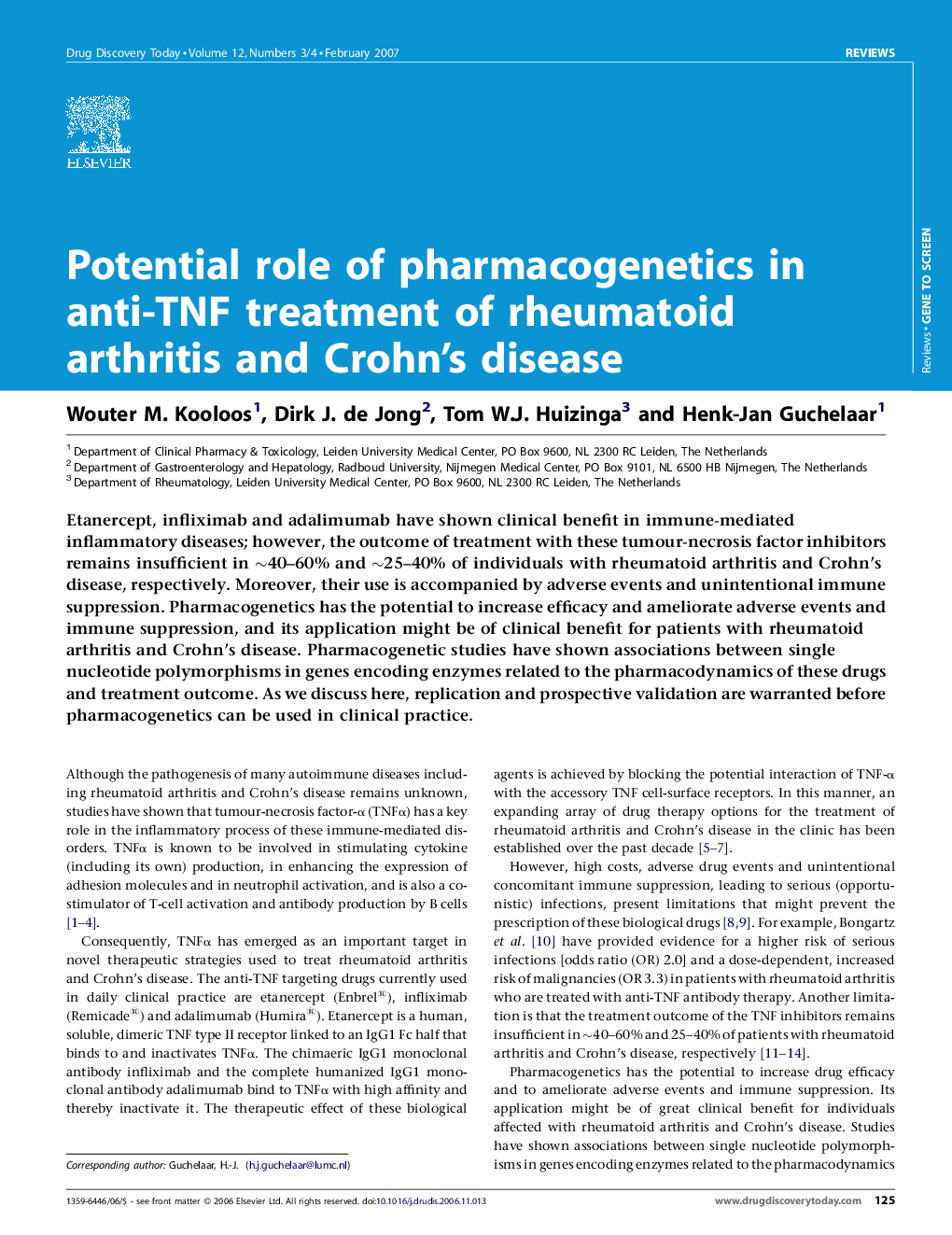| کد مقاله | کد نشریه | سال انتشار | مقاله انگلیسی | نسخه تمام متن |
|---|---|---|---|---|
| 2081081 | 1545200 | 2007 | 7 صفحه PDF | دانلود رایگان |

Etanercept, infliximab and adalimumab have shown clinical benefit in immune-mediated inflammatory diseases; however, the outcome of treatment with these tumour-necrosis factor inhibitors remains insufficient in ∼40–60% and ∼25–40% of individuals with rheumatoid arthritis and Crohn's disease, respectively. Moreover, their use is accompanied by adverse events and unintentional immune suppression. Pharmacogenetics has the potential to increase efficacy and ameliorate adverse events and immune suppression, and its application might be of clinical benefit for patients with rheumatoid arthritis and Crohn's disease. Pharmacogenetic studies have shown associations between single nucleotide polymorphisms in genes encoding enzymes related to the pharmacodynamics of these drugs and treatment outcome. As we discuss here, replication and prospective validation are warranted before pharmacogenetics can be used in clinical practice.
Journal: Drug Discovery Today - Volume 12, Issues 3–4, February 2007, Pages 125–131